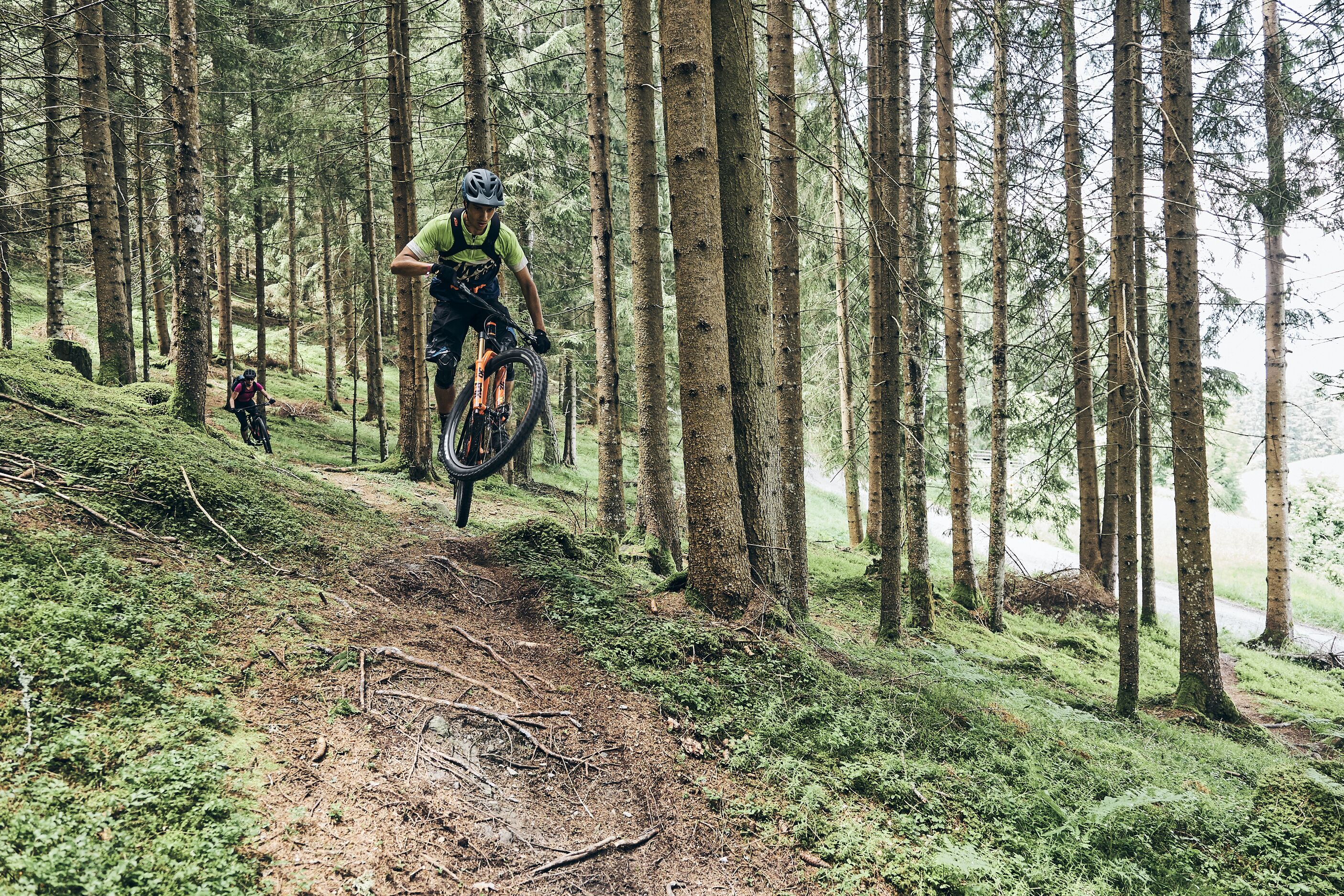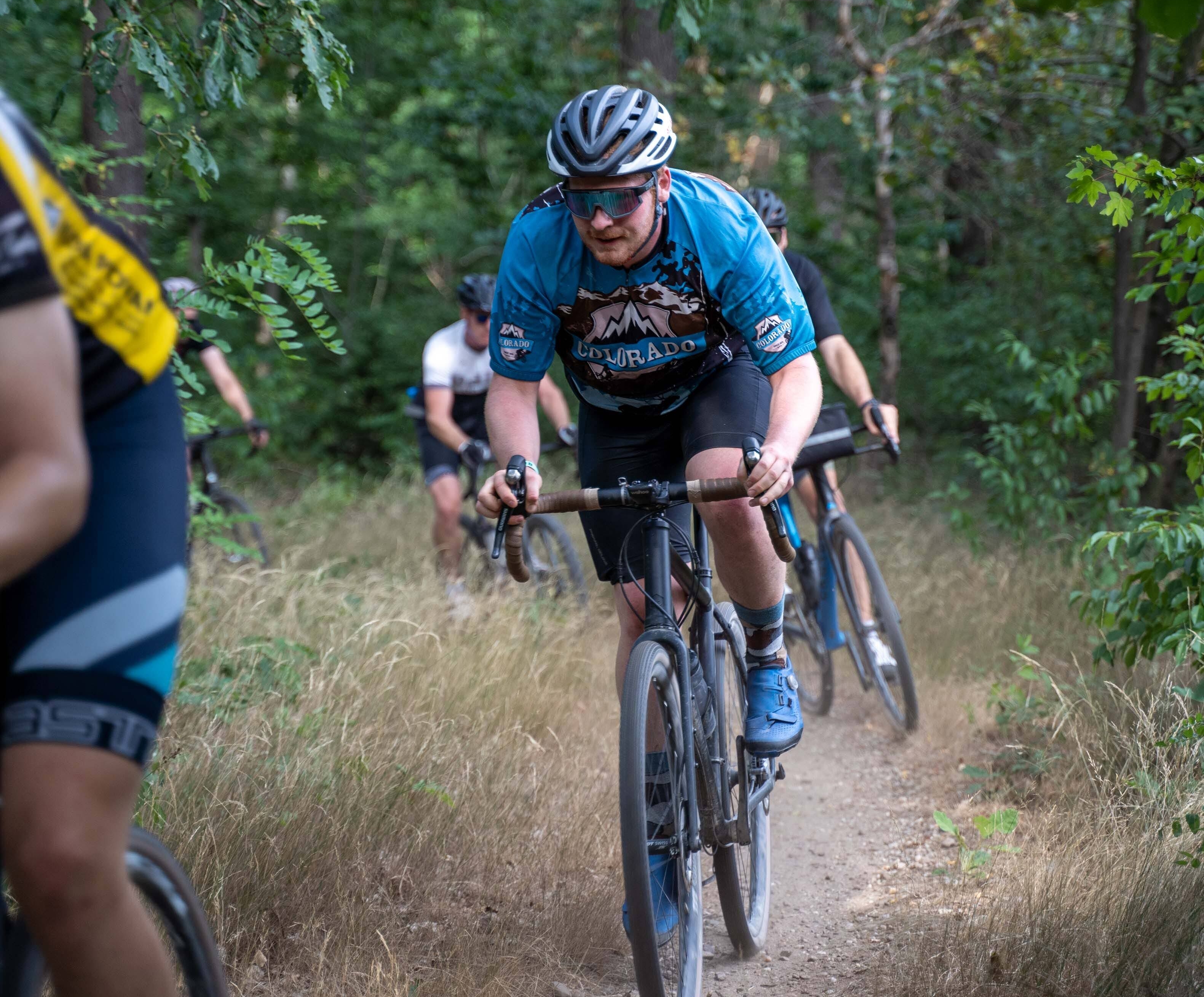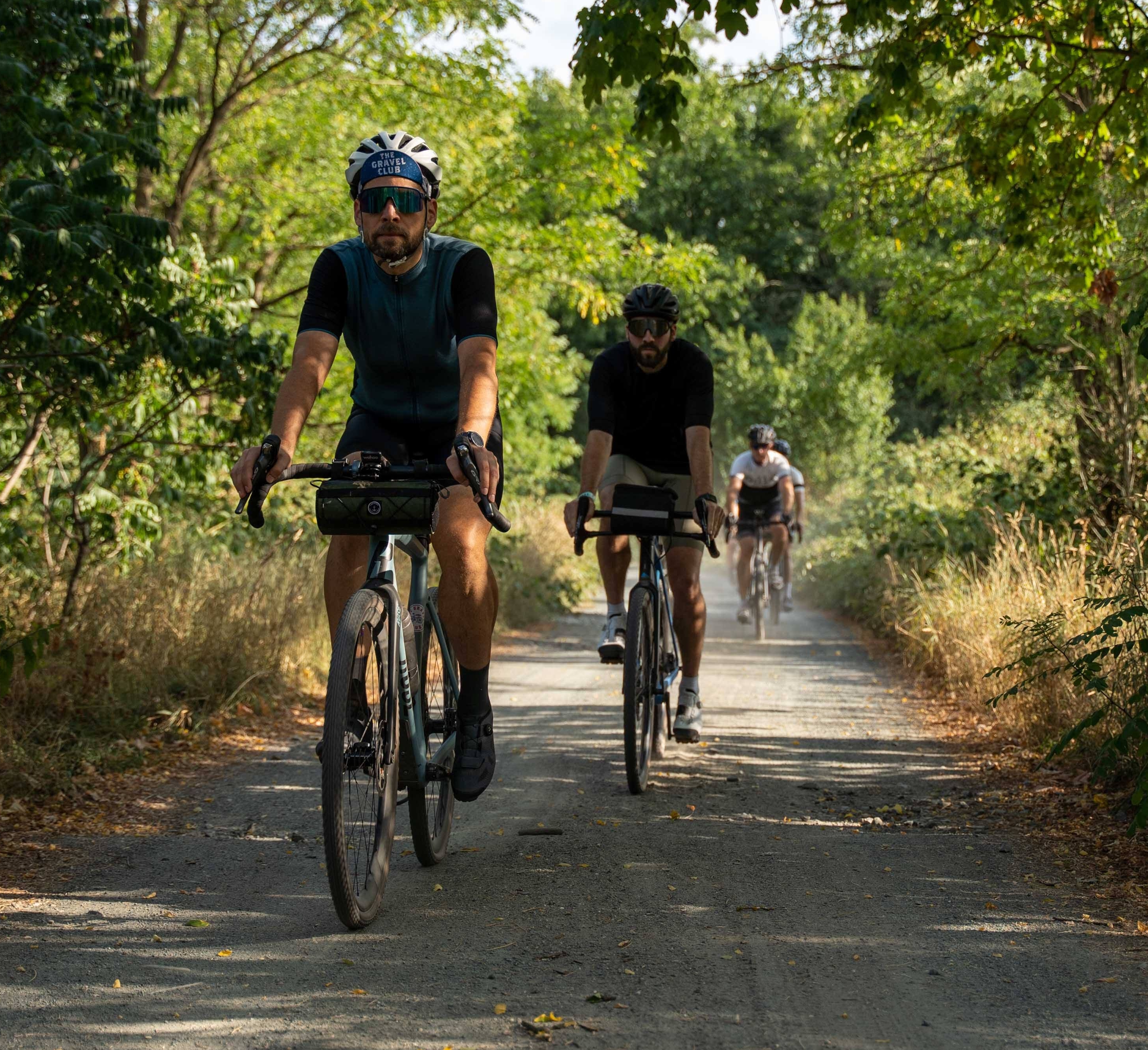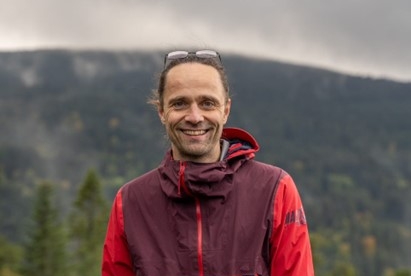The current situation: Forests are under pressure

According to the Federal Ministry of Food and Agriculture’s latest forest status report four out of five trees ‘are sick’. Increasing drought and global warming are massively damaging German forests. There is a rising threat from bark beetles, storms and forest fires.
In many areas, this has made intensive logging unavoidable. This has changed the ecosystem and landscape in many German regions. Furthermore, it has a direct impact on bike tours and trails through forest areas.
The demand: Mountain biking and gravel biking continue to boom.

There is a solid foundation for steady growth and in both sectors. Over the years, forests and nature areas have become increasingly popular for leisure activities. One third of Germans say they enjoy riding bikes on holiday. Mountain biking has seen the strongest growth in all holiday activities over the past five years. Strong sales of gravel bikes have increased this target group.
It often goes unnoticed that mountain biking is more popular than even football. Some 16 million Germans enjoy riding mountain bikes on paths and trails in nature – this is nearly three million more than actively play football. Biking and bike tourism has long been viewed as a way of potentially extending holiday seasons as a source of year-round tourism as witnessed in the Alps.
What changes might the new Federal Forest Act introduce?
The Federal Forest Act determines the rights of access in forests. According to current legislation, it is permitted to ride bikes on roads and trails in forests. However, Germany’s federal states could introduce further restrictions. In Baden-Württemberg for example, cycling is only allowed on paths that are at least two metres wide. This effectively criminalizes mountain biking and gravel riding on the most attractive trails. This and other legislation at a regional level have led to social conflict between mountain cyclists and other forest users.
How can regional trail networks be better coordinated? This also includes taking into account all the different interest groups from landowners, forestry management, hunting, nature protection to leisure, tourism and sport – in the face of increasingly strained public sector budgets.
In practice, strict restrictions often hinder good compromises for improved access and infrastructure. This then hardens the positions on all sides – with all the negative side effects. People go their ‘own’ ways, whether legal or not, especially when it comes to the digital dimension. The task facing local authorities is to bring together all the different demands and diffuse conflict to give all parties the ability to enjoy being outdoors.
The current amendment to the Federal Forest Act is now making this even more important. This is why the bike and tourism sectors decided to get involved well in advance of the public hearing of the German associations in Summer 2024. The Bike Nature Movement, the ZIV initiative from the German bike industry, Mountain Bike Forum Germany and the German initiative for mountain biking (DIMB) has done this successfully by working together with a large number of associations from tourism, the outdoor industry, sport and nature protection. In his welcoming address to the 8th German Mountain Bike Congress in July in the Pfälzerwald, Federal Minister Cem Özdemir said:
“Cycling and mountain biking in forests is pure recreation. And it should stay this way […] Yes, we are work-ing on a new Forest Act. However, naturally we will continue to ensure that it will be possible to do recrea-tion and sport in forests. And this also includes mountain biking.”

However, access rights for cyclists have yet to be resolved. It is important that associations remain vigilant. In addition, the changes are in their early stages. It has already been announced that Baden-Württemberg and Saxony plan to revise their state laws.
There will be more opportunities for regional discretion. Trial paragraphs and agreements could make it possible to test out solutions in a flexible manner. This would be an effective way to deal with the frequently cited, mostly conjectured conflict potential between user groups. There are also tried-and-tested solutions for delay reasons, such as liability issues, erosion and maintenance – from contractual arrangements to framework liability insurance for path owners and professional path maintenance, to name but a few.
“Promotion of cycling must not end at the edge of the forest. This is why we are building the Bike Nature Movement over the course of this year.”



